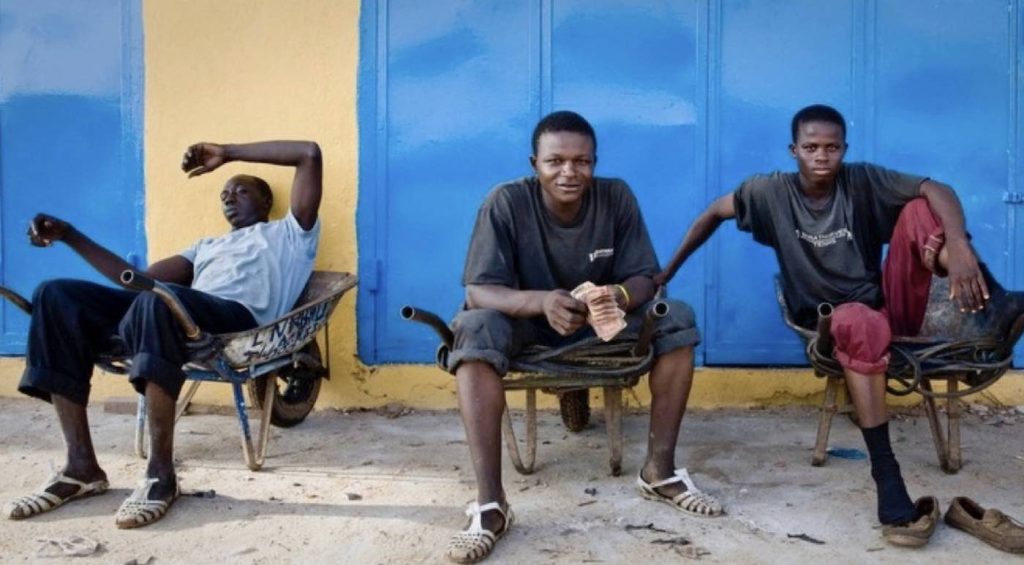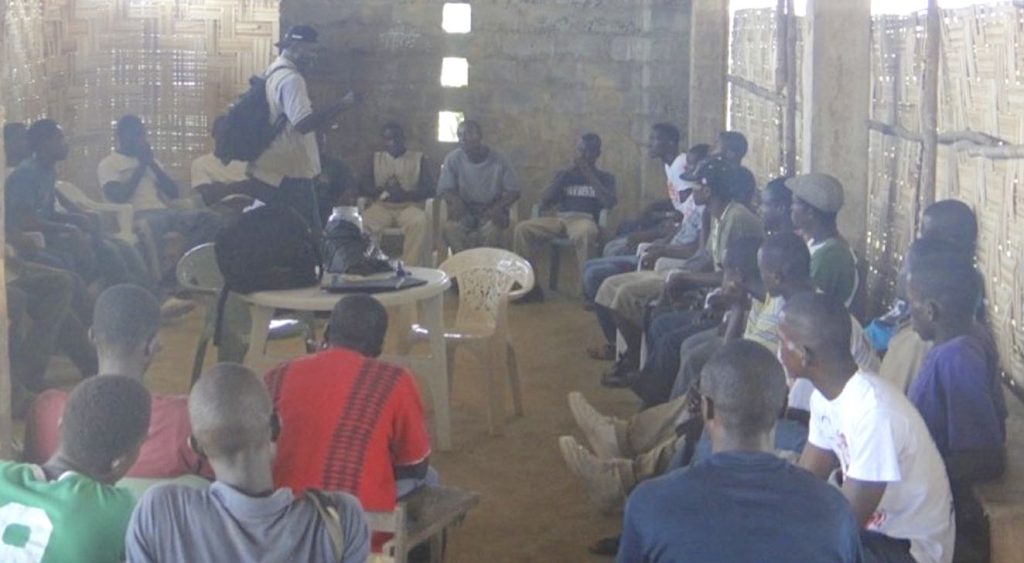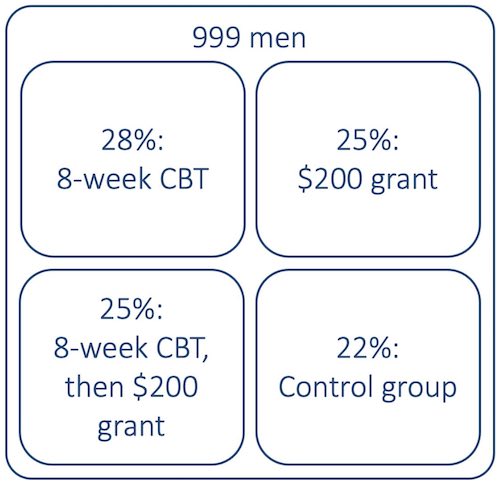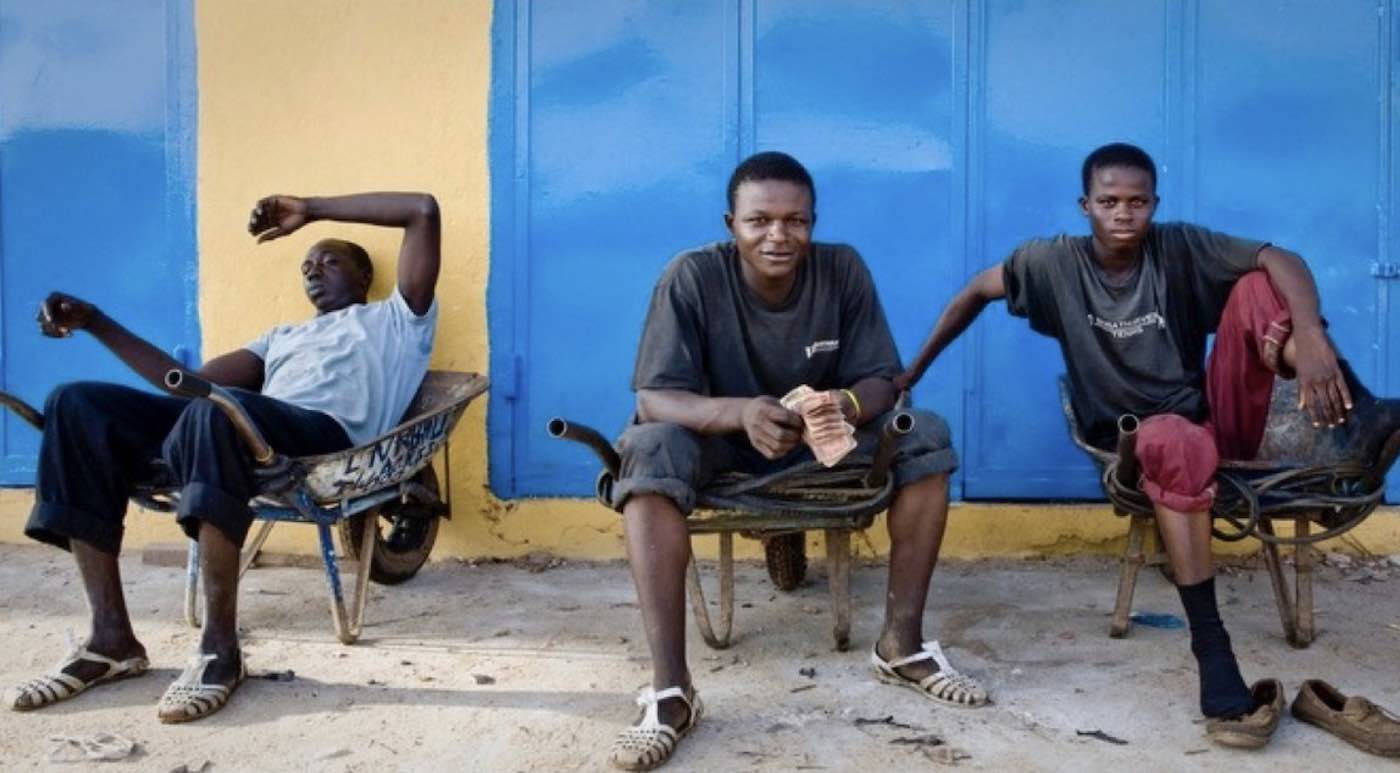
What if I told you that investing roughly $500 for therapy, plus providing a little cash, helped some of the most troubled young men in West Africa reduce their crime and violence by half—and the results continued for at least 10 years.
In their follow-up study, Chris Blattman and his colleagues calculated almost 350 fewer crimes per participant over the decade.
“That’s ~$1.50 per crime averted,” he exclaimed in a tweet last month.
“It was the most unexpected project of my life,” he said. And, now it’s “changed the way cities tackle violence, from Bogota to Chicago.”
In 2009, he flew with his wife Jeannie to Liberia for 2-week spring break as she did research on reintegrating ex-fighters from the war. Chris studies violence and wondered what he could do in the capital city (Monrovia), so he called up Johnson Borh.
“He was a combatant in the war and now ran some kind of NGO. He seemed to know everyone and be able to go everywhere. So I asked him to show me around how the crime and drug markets worked.”
Johnson obliged. One day they would learn how phones get fenced, another day they talked to the pickpockets. Chris’s favorite was the drug den run by Charles Taylor’s former anti-terror squad chief.
“But every time we go to one of these shady places, there’s a guy on the corner shining shoes or selling clothes out of a wheelbarrow, or something else pretty basic. He spots Borh, gets excited, and comes to give him a hug.”
He asked, “How do you know Borh?” Each time he heard the same response:
“I used to be like them,” and they’d point to the drug den or pickpockets. “But then I went through Borh’s program.”
After the 6th time this happens, Chris made Borh tell him all about the program. It’s called STYL: Sustainable Transformation of Youth in Liberia.
What exactly does the program do?
RELATED: Parole Officer ‘Empathy Training’ Leads to a 13% Drop in Offenders Returning to Jail
Chris, an economist and professor who studies global conflict at the University of Chicago, sat down with Borh in bar for two afternoons and they wrote down exactly what he does with the men during the 8-week program designed to transform their lives.
When his wife got back from jungle mining adventures, Chris says, “What does this look like to you?”
She’s a psychologist and says, “Oh, this looks like CBT.” Cognitive behavioral therapy.
“I’d never heard of it,” said Chris. “But it’s a common method of behavior change for lots of things, like anxiety.”
For 15 years, through trial and error, Borh and colleagues had adapted it to address aggression and crime—and toward adopting a mainstream social identity.
“He and his organization, NEPI, recruited the most dangerous men in the city. People who led lives of violence.”
“They met in abandoned buildings, in groups of maybe 20, for a couple of hours a day. Johnson trained some counselors, and they eked out a living on the program.”

Partly, they would learn and practice behavior changes, like managing anger and difficult social interactions. But they were also trying on and practicing a new identity. “NEPI encouraged them to stop dressing and acting tough. Get a haircut. Look like the 99% of Liberians who were respectable.
“So we partner with NEPI. We go out, run a pilot, measure impacts, and it looks really promising,” explains Chris. “We also try giving the men $200, to see whether it helps them solidify the new identity and behaviors.”
They watched closely, because they were worried about the men buying drugs or investing in guns.
“Things looked really good. So I recruit my coauthors to help run a large-scale study. We scaled up, raised a million dollars, and ran a huge randomized controlled trial with 999 of the toughest men in Monrovia.”
They followed up one month and one year later and found an impressive impact had endured.
50% overcame their destructive behaviors
Crime, violence, and antisocial behaviors were slashed by about 50% among those who received the CBT and the cash. Receiving the therapy alone seemed to fade a little in its impact over time.
Most of the evidence pointed to the economic assistance as being a big key to helping the men entrench their behavior changes, and avoid a return to crime.
POPULAR: Inmates Are Earning Free College Degrees Behind Bars, And Their Recidivism Rate Plunges to 2%
That was almost a decade ago. Would any impacts last?
“I was pessimistic, said Chris. “We surveyed experts in advance. Almost all expected CBT Only or Cash Only to have no effect whatsoever after 10 years. For Therapy plus Cash, one-third of the experts predicted no effect at all. 2/3 predicted steeply diminished impacts.”
“But we saw HUGE sustained impacts. Crime & violence still down by about 50% from CBT+Cash.”

“On thefts and robberies alone, they report ~34 fewer at both 1- and 10-year points. Interpolating, this means ~338 fewer crimes per participant over 10y—$1.50 per crime avoided given $530 the cost.”
(And that’s not counting all the other bad behaviors averted.)
The program is such a success that people have begun replicating Borh’s ideas around the world. “Even Chicago adopted it as a main response to the 2016 gun crime spike. It’s called READI.”
There are big lessons here, says Chris, who is the author of a new book, Why We Fight: The Roots of War and the Paths to Peace.
Gun violence is spiking in the Americas and cities need solutions—and they’re searching especially for ideas that don’t involve coercion.
All the evidence suggests CBT-informed programs are fast, effective, hyper-targeted, non-coercive ways to reduce violence.
“The fact that CBT works suggests deeper insights into why we fight as human beings, and what could make for a more peaceful world,” said Chris. “These are programs of socializing, and in them I see a microcosm of what the sociologist Norbert Elias called The Civilizing Process.”
It’s the big theme in Chris’s new book, Why We Fight—how, over centuries (or 8 weeks), societies have found ways to build more peaceful norms and institutions “because violence is so awful”.
At the same time as violence is curtailed, social scientists observe the slow invention of manners, habits of self-control, more sympathy and consideration for others, and a more rational and forward-looking mindset.
LOOK: Since Women Overcoming Addiction Repaid Town in Kindness, It’s One of the ‘Nicest Places’ in US
“In Why We Fight, I walk through the why. Some of the credit goes to a gradual cultural enlightenment, some to checks and balances, some to the development of the state. But much of it is due to the ways we socialize every generation to be more peaceful. Some of our patience, restraint, empathy, and consideration is imbued in our genes, but mostly it is learned and reinforced. Self-control is a habit. So is looking ahead to the future, controlling your anger, recognizing your biases, or trying to see the world from another POV.
“Some people just need a little remedial help to acquire these skills & norms—Chicago’s shooters, or the street criminals in West Africa. People like Borh show us how social workers can remake their own societies, and that peace is the product of this peer to peer socialization.”
Chris Blattman is the Ramalee E. Pearson Professor of Global Conflict Studies at the University of Chicago, in the Harris School of Public Policy and co-leads the university’s Development Economics Center and the Obama Foundation Scholars Program.
MULTIPLY The Good By Sharing This Prescription for Crime on Social Media…




















